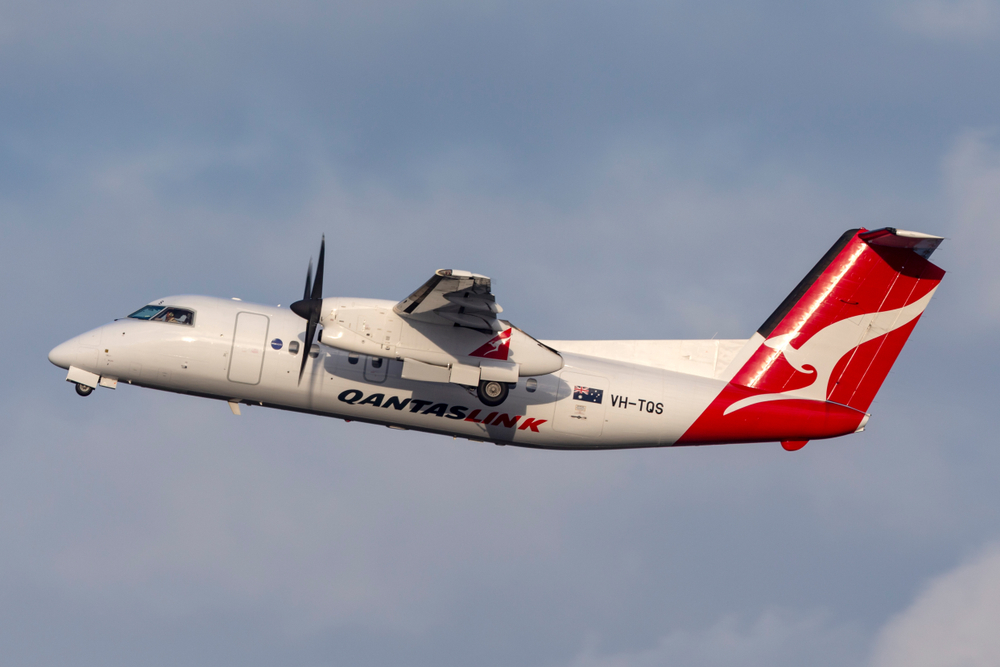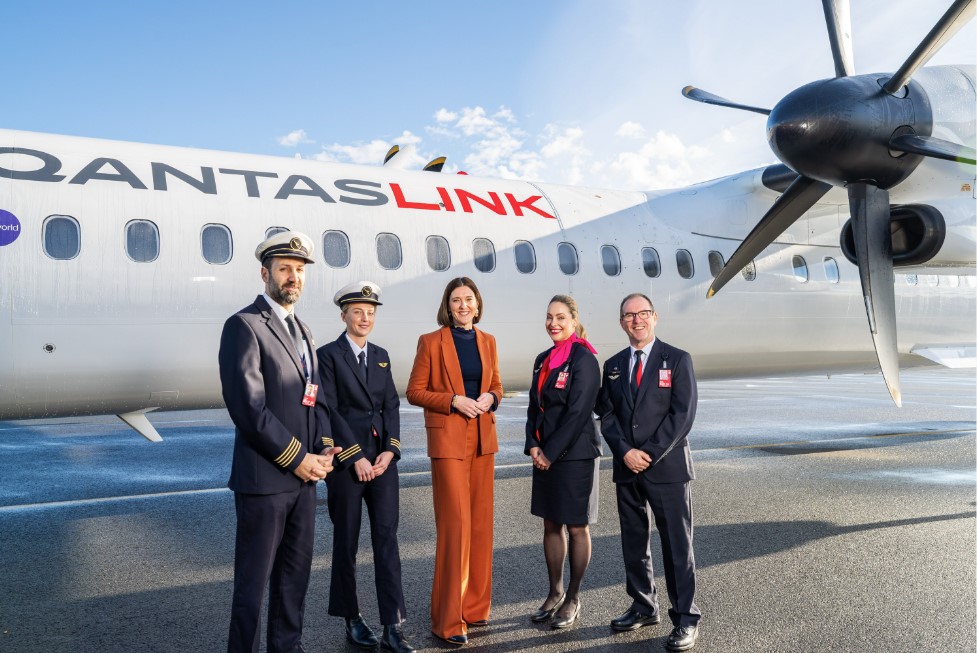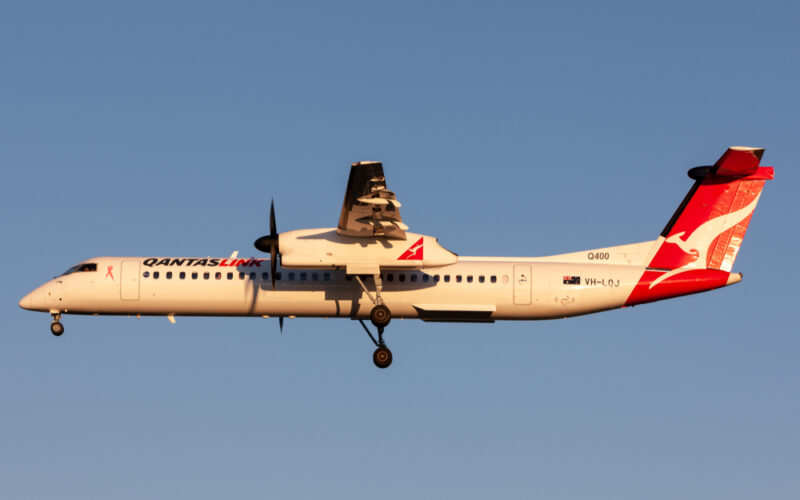Australian carrier Qantas has announced a major investment in its regional operations as it consolidates its fleet around a single aircraft type. The airline has committed to replacing 19 of its smaller De Havilland Canada Dash 8-200 and Dash 8-300 planes with 14 Dash 8-400 (Q400) aircraft.
The larger incoming Q400s are described by the carrier to be ‘mid-life’ models, presumably having already been flying for other operators previously. The first aircraft will join the fleet of the airline’s regional division (QantasLink) by the end of 2024, following which the phase-out of the smaller variants will follow.
According to a statement issued by Qantas, “the Q400 aircraft are more than 30% faster than the Q200 and Q300 aircraft, saving customers time traveling to and from regional destinations. The younger fleet will also help improve operational reliability. The investment is part of [our] ongoing commitment to keeping regional Australia connected.”

This investment by the Sydney-based carrier will bring the total number of Q400 aircraft in the fleet to 45. The consolidation of the three Dash 8 sub-fleets into a single fleet of turboprops will provide QantasLink with scale benefits and efficiencies including lower maintenance and operating costs. Although the relative sizes of the variants leaving and joining the fleet differ, the airline states that the overall capacity across its network will remain unchanged.
QantasLink currently has 31 Q400s in its fleet, which will increase to 45 following the new investment. The 14 incoming Q400s will have 78 seats (four more than the carrier’s existing Q400s) compared to 50 seats on the Q300s and 36 seats on its Q200s. The additional aircraft are on average more than 10 years younger than the aircraft they are replacing according to the airline and produce less carbon emissions per passenger than the smaller aircraft.
“As the national carrier, we are proud of the role we have played for more than 100 years keeping regional communities connected, and this investment ensures there will be ongoing reliable air services across many parts of regional Australia,” said Qantas Group CEO Vanessa Hudson. “QantasLink turboprops carry more than 3.5 million customers to more than 50 destinations around regional Australia every year, and these next-generation aircraft allow us to improve the travel experience with a faster and more comfortable experience.”

“By consolidating our turboprops into a single fleet type, we’ll be able to further improve our reliability and provide a better recovery for our customers during disruptions as well as reducing complexity and cost for our operation. We know sustainable travel is important for our customers. These additional Q400s allow us to provide certainty to the regions over the next decade while we work with aircraft manufacturers and other suppliers on electric or battery-powered aircraft that are the right size and range for our network” Hudson added.
This latest investment in QantasLink comes as the Qantas Group progresses its broader jet fleet renewal program, with QantasLink’s third Airbus A220 aircraft due to be delivered from Airbus in Canada in July 2024. The first two aircraft of the type have been in operation with the carrier since December 2023 (VH-X4A) and January 2024 (VH-X4B), respectively.
The airline confirmed that the investment in its regional fleet will be predominantly spread across the 2025 and 2026 financial years.

